Making The Grade In Rubber Chemicals
- By Juili Eklahare & Gaurav Nandi
- August 23, 2022
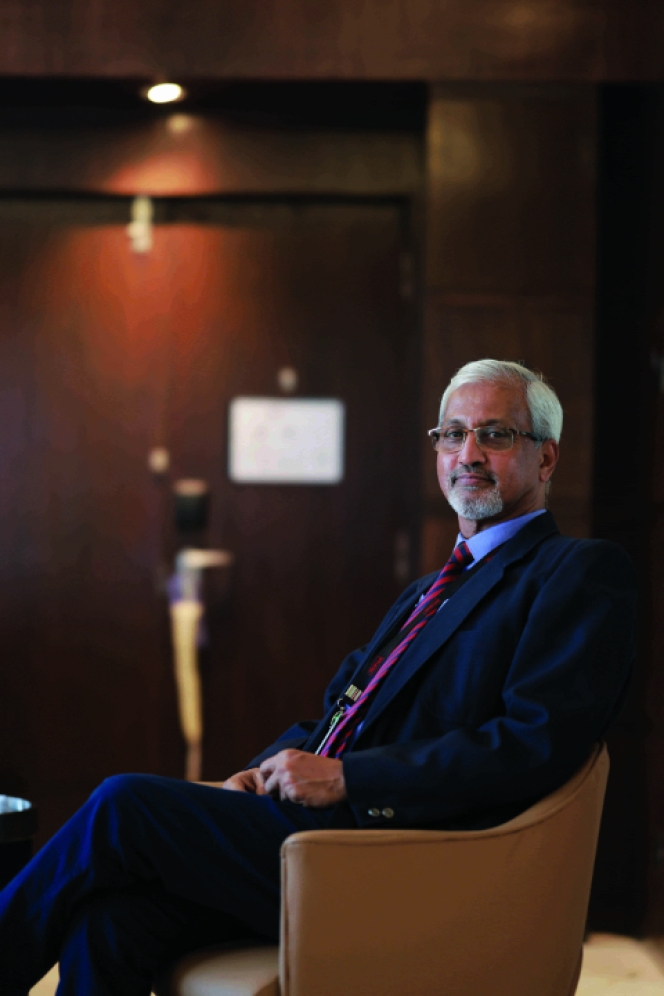
According to a new study by Report Ocean, the rubber processing chemicals market size is expected to reach USD 7.97 billion by 2028. That’s very close to Finorchem’s vision of being in the lead in chemical supplies to the tyre industry by 2030. We talk to the rubber processing chemicals manufacturer about the Acmechem-Merchem merger, how India can be at the forefront of the tyre industry and how quality speaks for everything.
In spite of Covid, tyre companies have come up with a lot of investments; green field projects are taking place and expansion has been happening. For the next 10 years, tyre organisations are talking about the growth of the domestic industry, which was seven to eight percent earlier. Plus, we can’t forget about the export market and another industry along with the tyre sector – the automobile sector. Along with the rubber industry, rubber chemical consumption will also grow.
One such company that believes it is in the right place at the moment, with all that’s going on across the world and because of the pandemic and the Russia-Ukraine war, is Finorchem, a leading manufacturer of rubber processing chemicals in the APAC region. Speaking in this context, Kishor Katkar, Director – Sales & Technical Services, Finorchem, says, “The supply chain is disturbed, and with the Acmechem and Merchem merger, we now have a wide range of rubber chemicals. We are ready to support the rubber industry with sustainable quality products from the rubber plant.”
The Acmechem-Merchem merger
Further sharing information on the Acmechem and Merchem merger, Rishabh Holani, Director, Finorchem, asserts that Acmechem is originally into a lot of speciality rubber chemicals and Merchem was more into mainstream rubber chemicals. “So the merger was a perfect fit in the synergy for us as we were already in the chemical field with specialised products,” he points out and goes on, “But with the merger with Merchem and the new entity named Finorchem, we have also entered mainstream rubber chemicals, catering to a wider range of customers that are using these mainstream chemicals. Hence, this fits well within our portfolio which didn’t exist. So it has opened up a lot of opportunities for our company, in both India and the world.”
So, is it true that the future is of collaborations and mergers? We can’t help asking, to which Holani answers with a yes. He further explains, “That’s because a lot of consolidation is happening across the industries. So it was a good synergistic move for us to get involved in mergers.”
Why R&D is important
Finorchem is paying rapt attention to how it is flourishing in its R&D department. Dr Raj B Durairaj, Director of R&D, Finorchem, has been in the R&D of the chemical industry for at least 45 years and joined Finorchem about three months ago. “I have been involved with a lot of R&D activities in the last 45 years. So my products developed in the US and China are well known throughout the world,” Dr Durairaj tells us.
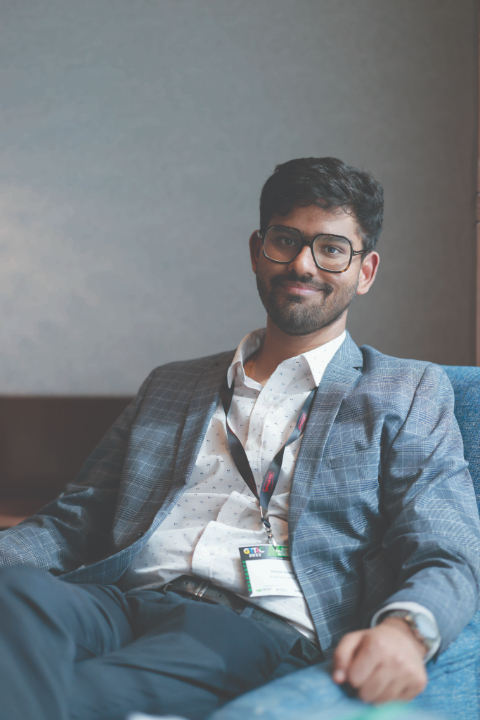
Rishabh Holani, Director, Finorchem
He further goes on to enlighten us that his concept is that any growth of a company depends on the strength of the R&D. “Hence, we want to put the infrastructure in such a way that our R&D can develop not only in the final product but from scratch,” he shares and continues, “We want to produce our own raw material so that we can develop the final product that is of high quality for our customers’ needs. If we do that, then we don’t need to depend on countries like China, or even Europe. With our knowledge in the chemical and rubber industry, we can develop advanced technologies. Right now, we are planning to develop advanced technologies in order to meet the challenges of the tyre industry, like rolling resistance, wet grip and dry grip. And those concepts are put in our developments.”
The company’s vision
It is just the beginning, definitely. Finorchem’s vision is that by 2030 it will be the dominant player in India, not only to supply raw materials for the Indian tyre industry but around the globe. So it is the right time where the company is putting its infrastructure in the manufacturing sector, R&D and the pilot plant facilities. With this, it plans on being at the forefront of chemical supplies to the tyre industry by 2030.
China’s impact on the tyre industry
Speaking of lands like China and Europe, China is still struggling with Covid and so is its tyre industry. China plays a huge role in the rubber chemical space; 70 percent of the supply comes from China, and it has impacted the whole industry because of the lockdowns that have taken place, Holani mentions. “However, we have made strategic moves in delinking ourselves from China and have strategically sourced our raw material partners and suppliers from different regions, whether it be India, the US, Europe or Japan,” he tells us.
Therefore, Finorchem was much more insulated from this entire tyre chaos that was taking place in China. This has helped the company in expanding its range while China was facing these difficult times.
However, the cost element needs to be taken into account. Today’s market situations are very volatile, and in some situations, China is much more expensive when even compared to countries like Europe or the US. Hence, the cost factor depends on situation to situation.
Shedding more light on this, Katkar elaborates, “We are talking about the China plus one policy, which even Japan is talking about. They have shifted their manufacturing base, so our tyre industry, as well as non-tyre industries, has really understood that over-dependence on China is going to fail miserably in the supply chain issue. With that, Finorchem is in the right position to supply locally, with quality and an economical product.”
Putting across his view, Holani adds, “In today’s industry, price is not the only factor. In fact, supply security has become a major question for every tyre industry and they are working towards the security of raw materials for themselves. This also happens to be one of the learnings from the Covid pandemic, which is why people are not going today for prices alone – they are making more strategic moves while selecting their raw materials supplier.”
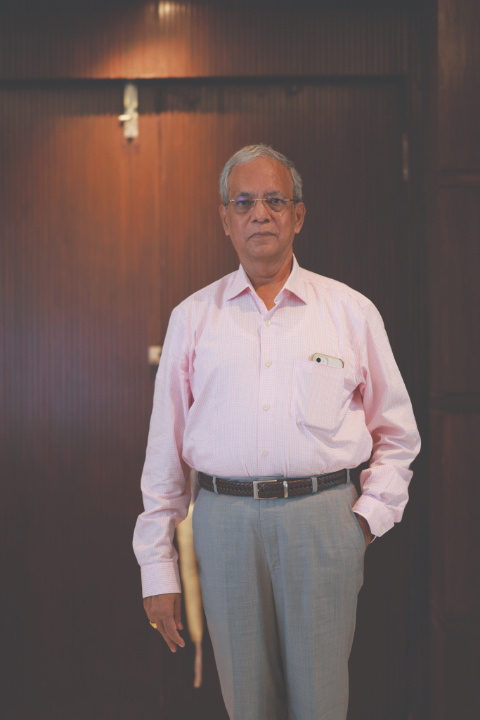
Dr Raj B Durairaj, Director of R&D, Finorchem
How India is at an advantage
While China was a major exporter of tyres to the US, this developed market is also looking for a sustainable second source, and India is the best second source, Katkar informs us. “We are already exporting 30 percent, which will eventually increase. Therefore, it is not only the raw material; if the industry wants to export, it will obviously require the raw material and rubber chemical, which is a major factor,” he avers.
Katkar goes on to mention that the major production of off-road tyres was in China. But now we see India bucking up, too. That’s because these are not very huge in volume and are specialised. “India can take up a major role after China,” he says and adds, “Initially, we were talking about quality tyres. But our tyre industry has really come up well to match European legislations, the tyre labelling etc. so that they can export passenger cars as well as truck tyres. And when talking about exports in the automobile industry, our tyres will also go well with OEMs.”
Reaching the hotshots
Finorchem already has a presence of almost 20-30 percent in the export market and is looking to grow that further in light of the problems present in China. “Everybody is looking at India as an alternate option in the China plus one policy, and we are definitely going to encash on that opportunity. The entire world is our market now, and we are certainly trying to make an impact in the global space,” Holani puts across.
Katkar further remarks that global tyre companies are already there in India in terms of footprint. So when they use Finorchem’s products locally and when the approval comes (which are global approvals), it automatically makes Finorchem flexible to supply to their global plant as well.
However, the bottom line is that foreign companies, like Michelin, are quality-conscious companies. Dr Durairaj states that their company’s goal is that if they can develop a quality product, with a high- performance product and the infrastructure that they are building in their R&D, then they can develop the chemical, test it, take it to the big players and convince them that, technically, theirs is a technologically driven company. Therefore, convincing them will definitely lead to their using it.
Giving an example, Dr Durairaj pronounces, “My product that I invented in the US is well known globally. The product has set the benchmark for all the tyre industries across the globe. Likewise, I want to do the same at Finorchem – developing a new chemical, which we have already started working on. For example, carbon black coupling agent is a new concept for our company. But we have already started developing that kind of a chemical. Every tyre industry is looking for that kind of a chemical so that it improves the magic triangle in the tyre. Likewise, if the chemical works, then not only can we get the patents to protect Indian technology, but at the same time, we can convince the big tyre players like Bridgestone, Michelin etc. to try to consider our chemicals in their tyre foundations. Thus, quality speaks for everything, which is our goal.
Going a little deeper, Katkar tells us, “The global organisations usually take a little time. Once they know that a company gives quality, they don’t go for just one quality product; they talk about the quality system. Once they are convinced that the company is a quality system, they may take a little time for the approval. But once the approval comes, it is through. In fact, we are already supplying to Goodyear and Continental that come under the first six in company ratings globally.”
Challenges to deal with
With every vision and strategy, the share of challenges is inevitable. Holani says that for Finorchem, the challenges are what everyone is facing. For example, there’s supply security. Like we know, China controls almost 70 percent of the market, and sourcing raw materials from other strategic sources can be very challenging, which is due to the supply and logistics constraints that the company has seen due to Covid.
“But I think that Covid has really prepared us for seeing the worst and how we can channel ourselves even in these difficult phases. So not only us but the entire industry is prepared to meet these challenges,” Holani further expresses and adds, “It won’t happen overnight, of course. It will take a lot of time, maybe decades. Thus, we are working in that direction, especially in the direction of Atmanirbhar Bharat. We are trying to develop raw materials in-house, go local and become self-sufficient.”
Room to manoeuvre
The Covid pandemic, despite the losses it brought to the world, taught it a lot, too, including the tyre and other industries associated with it. While going global is important, being significant locally is as pivotal. It’s important that the Indian tyre and rubber chemicals industries spot the prospects various scenarios in the world bring them and strategise accordingly. Where cost alone won’t play a crucial role, the truly effective factor that will vanguard the industry is quality. And that comes with being opportune, investing in R&D and being judicious about making available exactly what the customer is looking for.
- INDIAN TYRE INDUSTRY
- TYRE RETREADING
- BIS STANDARDS
- IS 15704
- ECE R109
- CIRCULAR ECONOMY
- MSME CHALLENGES
- AUTOMOTIVE REGULATION
- CARBON REDUCTION
- FREIGHT
- LOGISTICS
Retreading Hangs In Balance Over Regulatory Conundrum
- By Gaurav Nandi
- December 30, 2025
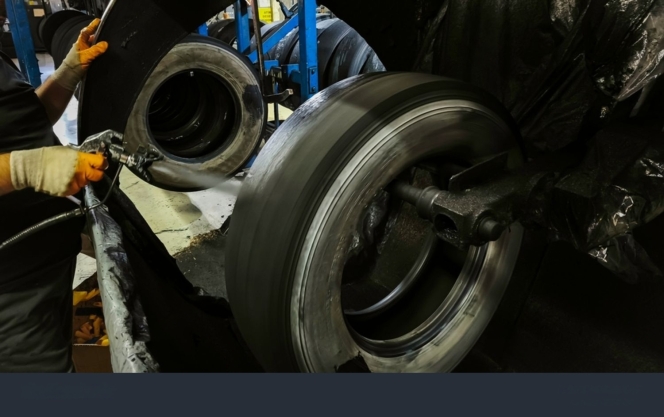
A population of over 1.4 billion people catapulting into the world’s third largest automobile market with four million trucks plying across a road network of 6.3 million kilometres supported by a USD 13.4 billion tyre market and a mining sector contributing around 2–2.5 percent of the country’s GDP demonstrate the strength of India’s automobile, freight and tyre sectors.
The story doesn’t end there as the Central Government adopts a strategic approach on reducing carbon emissions across these verticals, especially automobile and tyres, with targets such as the Net Zero Carbon Emissions by 2070, battery electric vehicles target by 2030, zero-emission truck corridors, Extended Producer Responsibility for the tyre sector; the list just goes on.
Amidst all such statistics and targets, a silent spectator remains the old and varied sector of tyre retreading. In a recent news story reported by Tyre Trends, the Indian Tyre Technical Advisory Committee (ITTAC) had made a proposal to Tyre Retreading Education Association (TREA) for mandating certain standards that will improve the quality of retreads. ITTAC has made recommendations to the BIS committee. TREA is part of the same committee. ITTAC and TREA are recommending different standards.
These standards included BIS retread standards, namely IS 15725, IS 15753, IS 15524 and IS 9168. The ITTAC had partially aligned Indian requirements with ECE R109, the European regulatory benchmark.
In a reply to the proposal, which was accessed by Tyre Trends, TREA urged the Indian Tyre Technical Advisory Committee to seek a deferment or non-applicability of BIS standard IS 15704:2018 for retreaded commercial vehicle tyres, warning that mandatory enforcement could cripple the sector.
In the letter, TREA argued that IS 15704:2018 is largely modelled on new tyre manufacturing norms and is technically unsuitable for retreading, which is a restoration and recycling process.
The standard mandates advanced laboratory tests such as spectrometer-based rubber analysis, endurance testing and compound uniformity checks, requirements that most retreading units, particularly small and medium enterprises, are not equipped to meet
The association highlighted that even large retreaders lack the infrastructure and skilled manpower needed for BIS-grade testing, while the sheer number of retreading units would make inspections and certifications operationally unmanageable for regulators.
TREA warned that compliance costs linked to machinery upgrades, audits and quality control could force 70–80 percent of units to shut down, leading to job losses, higher fleet operating costs and adverse environmental outcomes due to reduced recycling
Instead, TREA proposed that BIS prioritise retreading-specific standards such as IS 13531 and IS 15524, which focus on materials, process control, safety and quality consistency.
The body has also called for a phased transition roadmap, MSME support and industry training before any stricter norms are enforced, stressing that abrupt implementation would undermine the sector’s role in India’s circular economy.
The conundrum
India has a total of 36 administrative divisions comprising 28 states and 8 union territories. The tyre retreading sector has been continuously supporting circularity goals since the early 1970s across the world’s largest economy without getting mainstream recognition.
Even after five decades in service, the industry battles different bottlenecks including fragmentation, manpower shortage, tax pressures brought about by the recent GST revisions and now the implementation of such standards, just to name a few.
The sole practice that can simultaneously reduce carbon emissions from tyres and extend tyre life is assumed the nemesis of an ‘infamous and dangerous practice’ in some states of the country.
However, the industry has been drawing its techniques and quality parameters from the world’s oldest retreading economy, Europe.
“Big retreaders in India already have the necessary processes in place that conform to IS 15524 standards. However, as the standard is not yet mandated, we have voiced support for it because it is process-oriented and outlines how retreading should be carried out, including buffing and building procedures,” said TREA Chairman Karun Sanghi.
He added, “This standard focuses on how the work is done rather than imposing product-level testing that cannot be practically implemented. The current debate on IS 15704 stems from it being fundamentally incompatible. The standard includes requirements such as sidewall marking and destructive testing of retreaded tyres, which are impractical in a retreading environment where each tyre differs in brand, size, application and usage history,” he added.
Destructive testing, he argued, assumes uniform batch sizes. In retreading, where every casing is unique, testing even a single tyre would mean destroying finished products without yielding representative results. Applying such a framework would effectively require the destruction of every tyre in a batch, making compliance unviable.
“We have submitted our response to ITTAC and are awaiting feedback from the committee. We remain open to continued dialogue and will engage further once the committee responds to our submission,” said Sanghi.
According to him, a typical retreader processes about 300 tyres a month across multiple brands including MRF, JK Tyre, Apollo and Michelin and applications ranging from buses and trucks to mining vehicles. These casings vary widely in load cycles, operating conditions and duty patterns, often across several models from the same manufacturer.
The committee has cited European standard ECE R109, but Sanghi points to structural differences: “Europe is a global retreading hub where tyre manufacturers such as Michelin and Bridgestone dominate operations, collect their own tyres, retread them and return them to fleets, making batch-based destructive testing relevant. A similar model exists in US, where large tyre companies lead retreading and largely self-regulate without a single overarching standard. The Indian scenario is different, especially with a fragmented market.”
He stressed that the industry is not opposed to standards but to those that cannot be practically applied, warning that adopting European manufacturing-oriented norms without accounting for India’s market structure and operating realities would be counter-productive.
The debate is no longer about whether standards are needed but whether they are fit for purpose. Without accounting for India’s fragmented retreading ecosystem, enforcing impractical norms could dismantle a circular industry in the name of compliance.
TGL Season 2 Kicks Off With Hankook As Founding And Official Tire Partner
- By TT News
- December 29, 2025
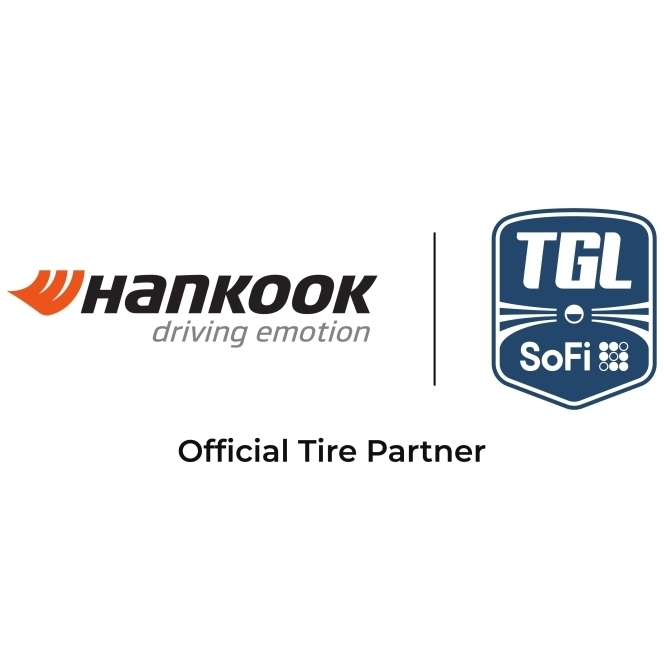
The second season of TGL Presented by SoFi, where Hankook Tire serves as the Founding and Official Tire Partner, commenced on 28 December 2025. This innovative league, a venture of TMRW Sports with backing from icons like Tiger Woods and Rory McIlroy, represents a strategic alignment for Hankook, uniting two entities driven by technological advancement. The partnership provides a global platform to reinforce Hankook's premium brand positioning across North America and worldwide through extensive visibility during broadcasts and at the state-of-the-art SoFi Center in Florida.
This unique venue embodies the league's fusion of sport and technology, featuring a massive simulator with a dedicated ScreenZone and a dynamic GreenZone. This area, equipped with a turntable and over 600 actuators, meticulously replicates real-world golf conditions indoors, creating an immersive arena experience. The competition itself is fast-paced and engaging, with teams of PGA TOUR players competing in Triples and Singles sessions over 15 holes. Innovative elements like the point-doubling ‘Hammer’, real-time strategy via ‘Hot Mic’ and a Shot Clock ensure a dynamic spectacle for fans.
The season opener presented a compelling narrative as a rematch of the inaugural finals, pitting the undefeated Atlanta Drive GC, featuring Justin Thomas and Patrick Cantlay, against a determined New York Golf Club squad led by Matt Fitzpatrick and Xander Schauffele. This match set the tone for an intensive season running through March, where six teams and 24 top golfers will compete. For Hankook, this partnership is more than signage; it is an active engagement with a global community, delivering a distinctive brand experience that bridges cutting-edge mobility and sport for enthusiasts everywhere.
Dunlop Secures CDP ‘A List’ Recognition For Climate Change And Water Security
- By TT News
- December 29, 2025
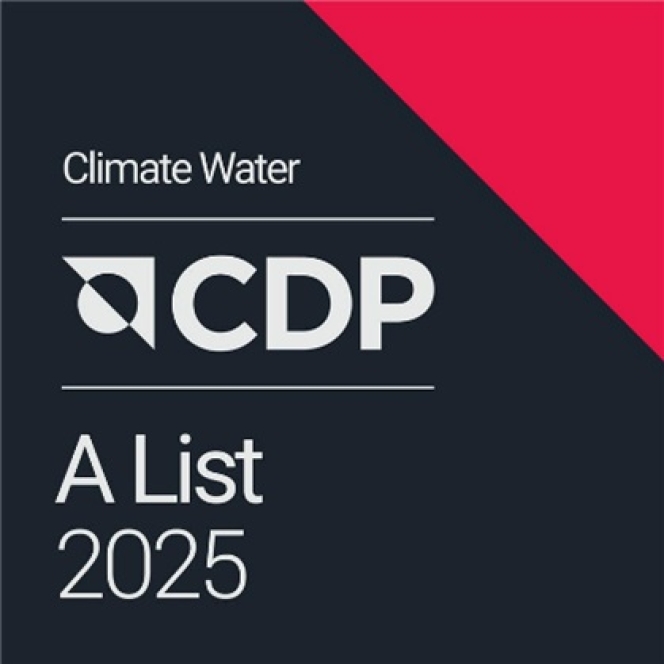
Dunlop (company name: Sumitomo Rubber Industries, Ltd.) has made its way to the annual A-List of CDP for climate change and water security. This premier designation, awarded for the first time to the company in the 2025 evaluation, recognises world-leading performance in transparency, risk management and environmental action. CDP’s annual assessment is a key benchmark for corporate sustainability across climate, water and forests.
This achievement stems from the Group’s integrated approach to material issues outlined in its corporate philosophy. It treats the interconnected challenges of climate change, biodiversity and the circular economy holistically, advancing concrete initiatives under its long-term ‘Driving Our Future’ sustainability policy.
On climate, the Group’s science-based emission reduction targets for 2030 are validated by the Science Based Targets initiative. Operational efforts include pioneering green hydrogen production at its Shirakawa Factory and developing tyres made entirely from sustainable materials by 2050. The company also works to reduce emissions across its supply chain, lowers tyre rolling resistance to improve vehicle fuel economy and extends product life through retreading.
For water security, the strategy is driven by localised risk assessments at global production sites. In seven facilities identified as high-risk, the goal is to achieve 100 percent wastewater recycling by 2050. Progress is already evident, with the company’s Thailand factory reaching full wastewater recycling in 2024.
These coordinated actions on multiple environmental fronts formed the basis for the Group’s simultaneous top-tier recognition in both critical categories from CDP.
Bridgestone Launches Co-Creation Initiative With Ethiopian Airlines Group
- By TT News
- December 29, 2025
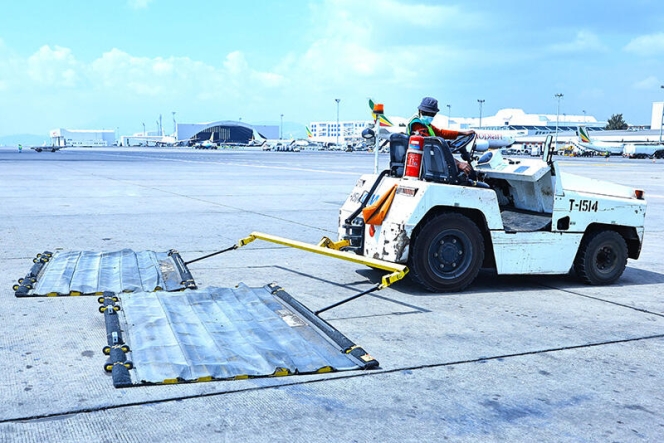
Bridgestone Corporation has initiated a novel co-creation programme in partnership with Ethiopian Airlines and Ethiopian Airports, focused on enhancing aviation safety at Addis Ababa Bole International Airport. This marks Bridgestone’s first sustained three-way collaboration with both an airline and an airport authority, targeting the reduction of Foreign Object Debris on runways and taxiways to support safer and more reliable aircraft operations.
The project was prompted by tyre-related incidents linked to debris at the airport, which previously risked disrupting flight schedules. Leveraging its specialised system for inspecting used airline tyres and analysing debris data, Bridgestone assessed conditions at the hub and proposed a tailored action plan. The company provided continuous support by analysing debris distribution patterns, developing visual hazard maps, advising on efficient collection methods and conducting training to raise awareness among airport personnel.
These sustained efforts have yielded significant results, substantially lowering the rate of tyre damage caused by runway debris compared to levels before the collaboration began. This reduction has supported improved on-time performance for Ethiopian Airlines while advancing overall operational safety. Additionally, the initiative has encouraged greater use of retreaded tyres, promoting economic efficiency and environmental sustainability within the airline’s operations.
Looking ahead, Bridgestone and Ethiopian Airlines Group plan to deepen their co-creation efforts, aiming to generate further value for the aviation sector and broader society through continued innovation and partnership.
Retta Melaku, Chief Operating Officer, Ethiopian Airlines, said, "At Ethiopian Airlines, the safety of our passengers, employees and aircraft is a priority. We are pleased to collaborate with Bridgestone to further strengthen our efforts in reducing FOD at Addis Ababa Bole International Airport and ensure safe operations at the hub airport."
Getaneh Adera, Managing Director, Ethiopian Airports, said, "We remain fully committed to upholding the highest safety standards at Bole International Airport at all times. This significant achievement in reducing FOD is the result of our strong commitment for safe operations and close collaboration with Bridgestone. Through our co-creation activities, we are pleased to have realised safer operations with enhanced productivity and economic value."
Jean-Philippe Minet, Managing Director, Bridgestone Aircraft Tire (Europe) S.A., said, "By combining the learnings and insights from Ethiopian Airlines' operational issues with our analysis technology and know-how, we have deepened our co-creation to propose customised solutions. We are delighted to contribute to safe aircraft operations with peace of mind and to improved operational productivity through the co-creation of efficient FOD reduction on airport surfaces. Through further expansion and evolution of this solution, we will amplify the value of our ‘Dan-Totsu Products’, trust with our customers and value of the data for creating new value."







Comments (0)
ADD COMMENT